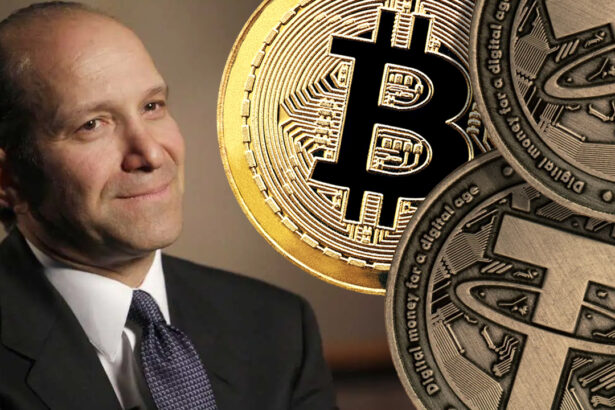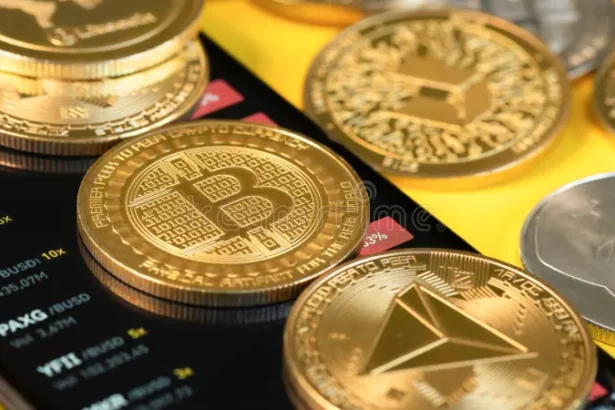Prospects of Digital Currency. Crypto investing nowadays is a roller coaster. But that’s changing. Coinbase has been valued at $86 billion, marking the first public valuation of a bitcoin corporation. Governments are developing or discussing digital currency. I believe everyone will carry a crypto wallet for these reasons.
What Is Cryptocurrency Anyway?
Decentralized networks, software, and rules govern the issuance of cryptocurrency by blockchain software. Blockchain is a decentralized accounting ledger that records transactions. Most decentralized systems have no central

Authority, making them fascinating. Blockchain verifies each transaction using robust cryptography and algorithms. You don’t need a bank to confirm a transaction if you trust technology.
Compare Bitcoin to fiat currency, issued by a government decree and governed by a central authority. Stable and controlled, fiat functions effectively as a store of value and unit of account. It can be transferred and kept at the same value. A country that prints a lot of money risks hyperinflation and depression, but it takes time. As we know it, money is thousands of years old. Significant, complicated fiat money transactions are expensive and time-consuming. Buying a residence or sending money from the U.S. to Eastern Europe can be difficult and time-consuming.
Crypto Pros and Cons
Crypto has perks and downsides. It is faster, cheaper, and generally anonymous. You don’t need a trusted third party to transact. Faster, more affordable, and more accessible transactions are the benefits. Peer-to-peer transactions often use anonymity for illegal objectives.
Additionally, crypto is quite volatile. As such, it is not stable enough to constitute an accounting unit. It has worth, although it fluctuates wildly. This post has taken 30 minutes, and my crypto portfolio may be down 10%, but it will rise in a few hours. The regulation and transactions of crypto and fiat currencies are the key differences.
Cryptos, like fiat cash, can be listed on an exchange like Coinbase and traded like equities. CoinMarketCap currently lists 4,800 cryptos, and I expect that figure to rise. Crypto can be issued without an exchange. Though not sellable, it is nonetheless a token. It has inherent worth but no transferable value. Know what you’re buying into when investing in crypto. More later.
We Welcome Government Regulation — Really
You might be surprised that Permission.io and other crypto-based enterprises want government oversight. It’s Wild West out now. Businesses struggle with unpredictability. JP Morgan, Visa, PayPal, Tesla, and others have Bitcoin and other cryptos on their books. However, the lack of regulation makes it unclear how companies like Tesla will declare Bitcoin on their taxes. Although Tesla no longer accepts Bitcoin for sales, some auto dealers still do. The U.S. has various regulations that can make it challenging for corporations to comply with or do business. But that challenge isn’t killing digital currency. As I indicated, digital currency is gaining popularity and government interest.
My recent review of CoinMarketCap estimates the global crypto market at $1.99 trillion. China has established the cyber yuan. The UK has established a task team to investigate the formation of ‘Britain.’ Latin American heritage banks recognize the necessity for regulation. The Biden administration appointed former investment banker and crypto professor Gary Gensler to lead the Securities Exchange Commission in the U.S. Gensler’s crypto views may clarify regulation. Regulation in the US is expected in 2021 or 2022.
Want to Get into Crypto? It’s Not for the Risk-Averse
Crypto is usually their riskiest asset, unless they invest in early-stage startups. Only risk what you can afford to lose with crypto. Do not risk your retirement savings here. Crypto is erratic and turbulent. But if you’re still crypto-curious, here are some critical pointers:
- Ensure you’re trading on a well-known and reputable exchange: Some dangerous exchanges might run away with your coin. Ensure you’ve researched the exchange for reputation and reliability and can safely trade in your country. Sometimes, you might be allowed to buy crypto but then find that you can’t trade it due to location.
- Watch out for phishing attacks: Phishing relies on tricking users into giving up information that gives malicious actors access to their accounts. While anyone who uses digital systems is a target, crypto can make you a tastier target. Stay up-to-date on the most common exploits. Pausing before you click can protect your coin.
- Crypto timing is minutes or hours: When trading stocks, you think about days, months, or years. Crypto trading is done in minutes or hours, sometimes days or weeks. Some people think in terms of years, but since crypto hasn’t been around that long, that’s highly unpredictable.
- Trading happens 24/7: In the U.S., the stock exchange runs Monday through Friday with holidays off. Crypto is 24/7, not a day off, always on. If you’re in the U.S., for example, when you get up in the morning, people in Asia have been trading all night. This can have a significant impact on your crypto wallet.
- Only risk what you’re willing to lose: I repeat this point because it’s essential. This is a highly volatile, under-regulated space. Take care to protect yourself.
How Secure Is Crypto?
Bitcoin’s security is stunning. Since every line of code is open, some of the world’s brightest minds have spent years trying to get in without success. You may have seen news about “the Bitcoin Hack.” Bitcoin was not hacked. Hackers targeted Bitcoin companies. The Ledger Bitcoin hardware wallet’s website vulnerability revealed its e-commerce and marketing database. Phishing attempts were easy because criminal actors received people’s emails, phone numbers, and last site visits. Due to widespread internet use, much of our data is already online. Bad actors can target crypto wallet owners with phishing attacks to get private keys.
Bitcoin is a safe core system, but you still need to secure third-party systems that store data about it. Like the American financial system, crypto security requires a robust ecosystem and vigilantes. Debit card skimmers plagued Americans at gas stations not long ago. Banks responded by attaching chips to cards. Any industry that has sensitive data must be careful. Permission.io needs each user’s actual human identification, like a bank. That identification must be transferable between systems and third-party systems without being compromised. You must show your driver’s license and identity in a bank branch. Identity management and other security measures are essential to the cryptocurrency system’s architecture, but it’s more challenging to execute online.
The Future of Crypto and Blockchain
Many sectors experimented with blockchain three years ago. That changed. A supply chain is likely the greatest blockchain adopter after crypto. Walmart and other organizations use blockchain to address difficulties. Blockchain is used in insurance, fintech, energy, and medical records. I predict adoption will increase as the ecosystem of third-party support for blockchain usage grows due to its immutable record.
Crypto is maturing like blockchain. Tesla CEO Elon Musk sold 10% of its Bitcoin holdings recently. Musk tweeted that he did so “to prove liquidity of Bitcoin as an alternative to holding cash on the balance sheet.” These steps may accelerate regulation. In five years, I expect precise regulation. Coin consolidation is coming. Those without financial backing and utility will fail. I think many national governments will issue digital currencies. After coin consolidation, the remaining coins will be stable for transactions.
A developed and stable currency needs three elements. Transferable, a unit of account, and a reliable store of value are required. I think crypto will mature like this despite its volatility. Crypto will become more prevalent in corporations, governments, and daily life. The unhidden fact is that I don’t think governments will control money for long. Decentralization of economic and financial systems scares them. If governments embrace it, it can work. They’ll struggle harder if they resist it since you can’t govern an outlawed currency. Government regulation and taxation of crypto make the system more stable for everyone.






